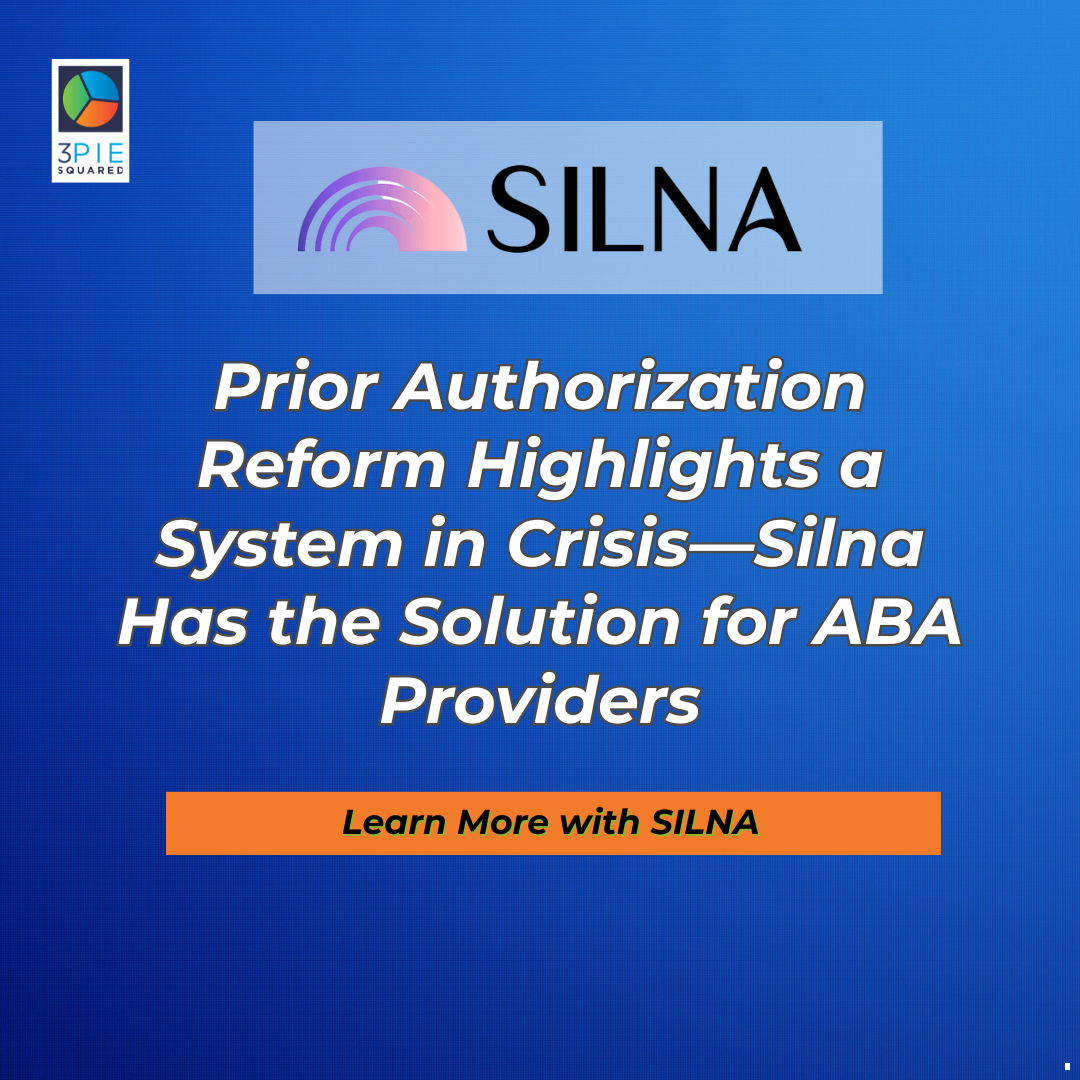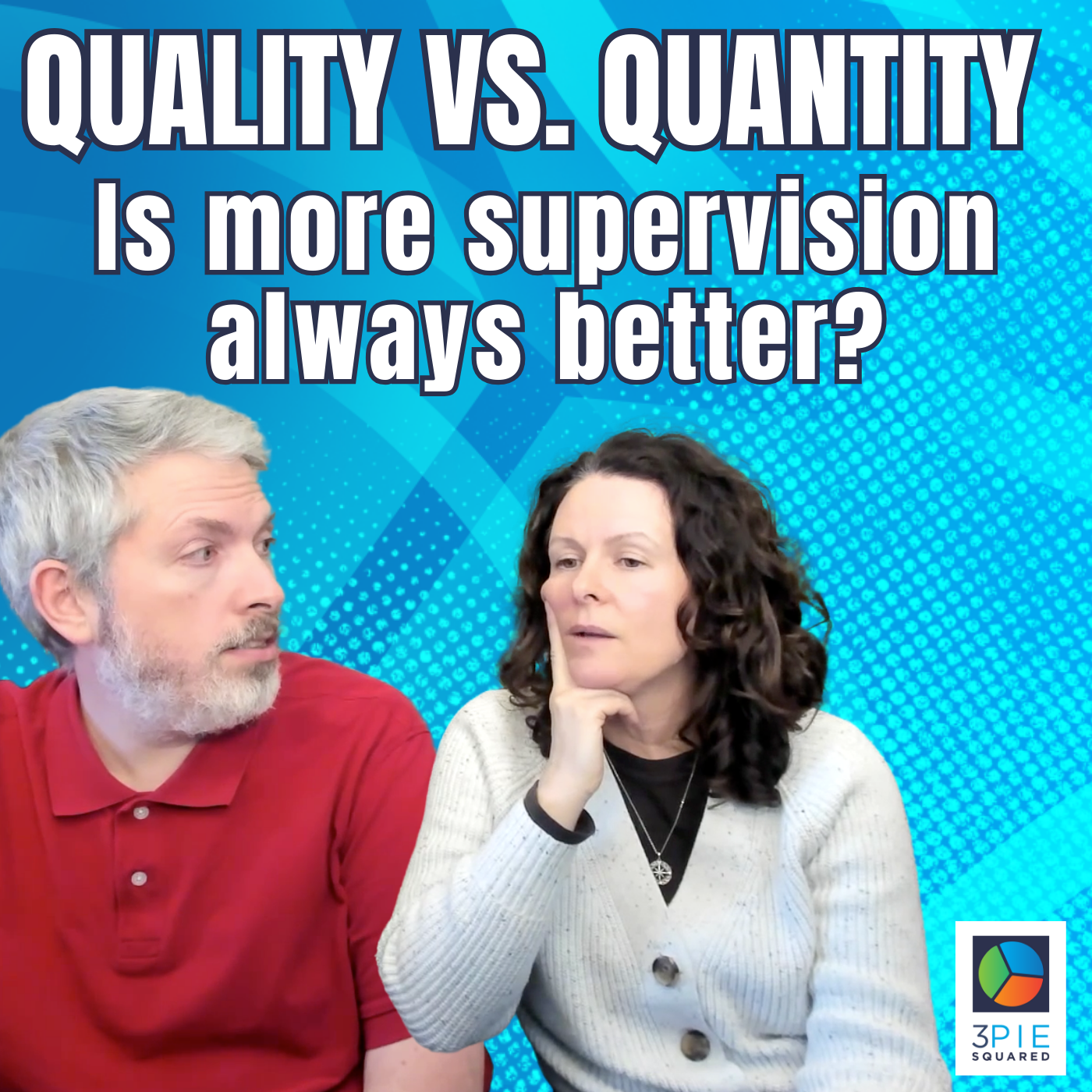We’ve all heard the story.
A parent walks into your ABA clinic confused and frustrated. They just met with another provider—a large, well-known organization promising ABA therapy at no out-of-pocket cost. “They said we don’t have to pay the deductible,” the parent explains, expecting you to match the offer. When you show them the actual patient responsibility based on your billing system and insurance contracts, the conversation shifts from care to cost.
Welcome to one of the most complicated—and legally risky—topics in ABA business news today.
For ABA practice owners, especially those running ethical, sustainable clinics, the idea of waiving...
Check Out Our Other Articles
Navigating Team Dynamics, Ethics, and Growth in ABA: An AMA with April and Stephen
ABA News Roundup: Medicaid Payments in Florida, Ownership Rules in Illinois & New York, and New Billing Support
Illinois Joins New York in Requiring Licensed Professionals to Own ABA Practices
Florida Medicaid Crisis: ABA Providers Struggle to Get Paid
Building Resilient ABA Businesses (Part 2): Finances, Burnout, and Lessons Learned
What ABA Providers Can Learn from Medicaid Cuts and HIPAA Settlements - Join us Live at 8:00 AM
HIPAA Lessons for ABA Providers: What We Can Learn from the Deer Oaks Settlement
North Carolina Medicaid Cuts: Why ABA Providers Must Act Now
Building Resilient ABA Businesses
Cutting Through Prior Authorization Red Tape: How SILNA Helps ABA Businesses Thrive
Join Us Live: Safeguards in ABA & California AB 951
Safeguards in ABA: Why In-Home Protections Cannot Be Overlooked
California Ends Mandatory Autism Re-Diagnosis for ABA Therapy Coverage: What AB 951 Means for Families and Providers
Building ABA Teams That Thrive (Part 2): Managing ABA Business Caseloads
Partners, Profits & Peace of Mind: Why Financial Clarity Matters More Than Ever for ABA Providers
Summer’s Not Over—But We’re BACK! (Join Us Live on Facebook Monday, August 4th at 8 AM Eastern)
Colorado RBT Requirements: What ABA Providers Are Actually Saying
Nebraska Medicaid Rate Cuts: What ABA Providers and Families Need to Know
Building ABA Teams That Thrive: Structure, Support & Culture!
Would You Rather: Real ABA Leaders Tackle the Tough Choices
New Tax Law, New Opportunities: What the OBBBA Means for ABA Providers
Prior Authorization Reform Highlights a System in Crisis—Silna Has the Solution for ABA Providers
AI Meets ABA: The Future of Behaviour Analysis with Adam Ventura
Finding Your Why: The Heart of ABA Business Ownership
Looking after your RBTs, Part 2: Knowing Your Worth
Silna: The Physician’s Perspective of Prior Authorizations
This Week in ABA News - Why Ethics Matter: ABA Insurance Mandates, Broken Trust, and the Real Work Ahead
When Trust Is Broken: What Every ABA Provider Must Learn from Recent Abuse Allegations
The Real Story on ABA Insurance Mandates: When Low Rates Undercut the Promise
This Week in ABA News: Prior Authorizations Under Fire and a Wake-Up Call from Kansas Schools
When Schools Ban ABA Therapists: Lessons From Kansas, and a Wake-Up Call for ABA Providers
RFK Jr., Dr. Oz, and the End of Prior Authorizations? What ABA Owners Need to Know
Real Talk for RBTs: Advocacy, Burnout & Building a Better Workplace
The Ethical CFO: Why Financial Leadership Is Every ABA Owner’s Responsibility (Even If You’re Small)
Play Is Productive: The Hidden Power of Play in ABA Business Ownership
This Week in ABA: Policy Shifts, Data Science, and Cybersecurity— Join us LIVE at 8 AM Eastern today!
Ransomware in ABA: What It Looks Like, How to Prevent It, and Smarter Email Security
Florida’s Sweeping Autism Law: What it Means for Families, ABA Providers, and the Future of Autism Services
The Autism Data Science Initiative: Why It Matters for ABA Providers and the Future of Autism Care
ABA Weekly: Lifelines, Benchmarks & Compliance—Join us Live at 8 AM Eastern
HIPAA in 2025: Why Every ABA Company Needs to Rethink Compliance—Now
The Real Benchmark: What HealthBench, AI, and ABA’s Future Mean for Kids
When Systems Fail Families, ABA Can Still Be a Lifeline
How to Improve ABA Supervision with Allyson Wharam of ‘ABA in the Field’
ABA Business Weekly: HIPAA, M&A, and Turning the Tide in Special Ed - Live at 8AM Eastern today!
HIPAA Breaches Aren’t Just a “Big Company” Problem: What ABA Businesses Need to Learn from the WellNow Settlement
Turning the Tide: How ABA Leaders Can Rebuild Trust in Special Education
Navigating the 2025 ABA M&A Surge: What Ethical Practice Owners Need to Know
Ego Driven Hiring: A Wake-Up Call for ABA Business Owners
Waiving Co-Pays and the Power of Partnership - Live New Today at 8 AM Eastern
NASQN & 3 Pie Squared Partner to Empower Ethical ABA Practice Growth
Clarity, Capacity, and Efficiency with Silna
Chaos, Contracts & Chatbots: What’s Really Steering ABA? - Live news today - 8 AM Eastern in Facebook
The Contract Temptation: Why Classifying BCBAs as 1099s May Be a Risk for ABA Companies
When Systems Fail Quietly: Optum, Medicare Fraud, and the ABA Fallout We Can’t Ignore
Whose Hand Is on the Wheel? What a Reddit AI Experiment Means for the Future of Clinical Judgment in ABA
Finding Joy in the Journey
Two Truths and a Wake-Up Call: Medicaid Cuts, Treatment Intensity, and the Future of ABA - Live discussion today at 8 AM Eastern
The Real Impact of Medicaid Cuts on ABA Therapy: What Providers and Families Need to Know
Quality Is a Choice: What Treatment Intensity Says About Who We Are in ABA
3 Things We Thought Would Be Easier!
Celebrating Mothers (and Everyone Else Who Deserves a Break): 50% Off the ABA Business Leaders Platform This Weekend Only!
Experts, X-Rays, and Indiana Drama: Live discussion today at 9:00 AM Eastern
Who Gets to Speak in ABA—and What Does That Say About Us?
Indiana Is Back in the News: What ABA Providers Need to Know About the State’s Latest Push for Cost Controls
How Applied Behavior Analysis Can Improve Healthcare Systems
Dealing with workplace drama!
🧩 Trends, Truths & Turning Points: What’s Shaping Autism and Behavioral Health in 2025
Arkansas Mom Releases Powerful Children’s Book on Autism and Mealtime Struggles
“What are we really doing here?”: The Push to Standardize Quality in Autism Therapy
Behavioral Health Deal Volume Up 53% in Early 2025: What This Means for ABA Practices
The Growing Gap in Autism and IDD Care: Why the Industry Must Scale Ethically and Strategically
Should a BCBA Always Own the Clinic? Maybe Not.
Staff, Tariffs, and RFK Jr.: What ABA Companies Need to Know Right Now - Live today at 8 AM Eastern!
ABA Staff Turnover Is Still Out of Control — Here’s What the Data Says
How the New Tariffs Could Impact ABA Businesses (And What You Can Do About It)
RFK Jr.’s Autism Registry Proposal: Understanding the Implications for ABA Companies
How Margin Keepers Can Help You Master Payroll & Financial Planning
Quality over Quantity- Is more supervision always better?
Denials, Audits & Billing Headaches: ABA News Roundup – April 14, 2025
Nebraska Issues New ABA Medicaid Service Definitions Amid Federal Audit Scrutiny
Concerns Grow Over Insurance Misuse of Medically Unlikely Edits (MUEs) in ABA Therapy Denials
Federal Audit Finds $56 Million in Improper Medicaid Payments for ABA Therapy in Indiana
UnitedHealthcare’s Strategy to Limit ABA Therapy Raises Alarm in the Autism Community
It’s Time to Get Real: ABA Business Owner Burnout
From Policy Shifts to Legal Hits: ABA News Roundup – April 7, 2025 - Live event today at 11AM Eastern!
Texas Recognizes QABA® for Behavior Analyst Licensure
Maryland Clinic Settles HIPAA Violations After Ransomware Attack
New York’s Proposed Medicaid Cuts Raise Concerns for Autism Services
Massachusetts Expands ABA Therapy Coverage to Children with Down Syndrome
Indiana’s Updated Medicaid Policy for ABA Therapy: What You Need to Know
Expanding to a Clinic? Do this first!
From Big Deals to Big Trouble: ABA Business News - March 31, 2025
The truth behind the client and staff cancellations
Top ABA Headlines
Local Owner Highlight- When to scale your ABA Business
Understanding the journey- Improving caregiver relationships with Melanie Thurston
How Effective Bookkeeping Ensures Payroll Stability and Helps You Retain ABA Staff
The Importance of Bookkeeping Services for ABA Business Owners
Mastering Marketing – Local Outreach Done Right
How to Scale Your ABA Business
You Just Closed Your ABA Company... Now What?
Building the Future of Small ABA Businesses – Join Us in This Mission
Red Flags in ABA Service Providers
Coaching Session- Discussing Onboarding with a New Owner
Would You Rather: Hiring in ABA
Grow your own BCBAs vs. hiring- What you need to know
Aligning Leadership with Values: Behavioral Intelligence in ABA with Dr. Paul Gavoni
ABA Accreditation: Compliance or Commitment to Quality?
AI meets clinical decision making- Using AI to improve patient outcomes- with Amanda Ralston
Comprehensive Updates to ABA Practice Handbooks: Enhanced Policies, Compliance, and ACQ Standards Integration
Leadership in ABA: Building Values, Managing Relationships, and Driving Progress with Martin Myers
Leadership, transparency, and collaboration in ABA organizations, with Jennifer Heidt
Building Better Care; Public Policy and Staff Empowerment
Free RBT Training for Your ABA Team This Holiday Season!
Innovating ABA Practice with AI Solutions
How can we help? Using ACT with Meg Solomon.
Building Resilience in ABA Practices: Lessons in Staffing, Billing, and Growth
Flash Sale: 6 Months Free Access to Our ABA Business Leaders Training Platform for 25 Companies!
I Hate My Job: Exploring Real Solutions
I Hate My Job: Reaction to Posts
I Hate My Job: Real Stories of Ethical Dilemmas in ABA
Introducing the New ABA Business Leaders Training Platform
I Hate My Job: Voicing the Frustrations of ABA Professionals
Introducing Our New Self-Paced Courses: Revenue Cycle Management & Effective Hiring with Indeed
CPABA Conference: A Path Forward for the Field - Get a 10% Discount!
Empower & Thrive: Registration Extended Until October 7 - 50% off!
Exciting New Coaching Opportunity for 3 Pie Squared ABA Business Leaders!
Free Download! Discover Essential Tax Compliance Tips with MarginKeepers
Why Stephen is Excited About the CPABA Conference 2024 - Discount just for you! -
3 Pie Squared Partners with Happy Medium RBT to Offer a Revolutionary 40-Hour RBT Training
Maximizing Recruitment with Indeed: How to Find the Right Candidates Without Breaking the Bank
Empathetic Leadership in ABA: Supporting Our Techs
Five Weeks of Wisdom: Bite-Sized Insights from 3 Pie Squared
Introducing the ABA Business Leaders Training Platform
Free Download! Boost Your Established ABA Practice with MarginKeepers' Essential Accounting Tips
Inside the World of ABA Audits and Legal Guidance with Kim Mack Rosenberg, Esq.
Ethical Practices for ABA Testimonials and Reviews with Dr. Jon Bailey
Navigating Growth and Challenges in ABA Business with Alecia Barrett
For a limited time, buy any of our handbooks and get our Business Leaders Membership for 75% off!
Collaboration in ABA: Strengthening Connections Among ABA Business Owners
"I Hate My Job" Series Kickoff: Discussing Burnout and Unethical Practices in the ABA Field
Top Five Essentials for Your Company Policies
Discount Ends Tomorrow – Last Chance to Get 20% Off Our Comprehensive ABA Billing Training Series!
Mastering Digital Marketing for ABA Practices with Reece from Reputation Elevation
Navigating ABA Business Growth: Consultation with Alecia Barrett
Unlock Your Billing Potential: Our New ABA Billing Course and Free ABA Billing Tips!
Navigating Company Policies: A Blueprint for ABA Practices
Free Chart of Accounts: Optimize Your Bookkeeping with MarginKeepers
Safeguarding Integrity: Proactive Strategies to Mitigate Billing Fraud in ABA Therapy
Steering Clear of Fraud: Mastering Insurance Billing in ABA Practice
From Overwhelm to Strategy: The Journey of an ABA Business Leader
Beyond the Startup: Common Mistakes by Seasoned ABA Business Owners
Essential Elements of an Employee Handbook for ABA Practices
Don’t Do That!: Avoiding Common Missteps in Your ABA Practice
Pre-Hire Power: The Critical Importance of an Employee Handbook for ABA Practices
Integrating Art into ABA Therapy: A Conversation with Natasha Bouchillon
Why a Client Handbook is Crucial Before Starting ABA Services
🥧 Grab a Slice of Success: Pi Day Flash Sale! 🎉
Why Should I Get a Client Handbook Before I Start Seeing Clients?
Financial Insights for ABA Practices: Free Chart of Accounts from MarginKeepers!
Navigating Authentic Copywriting in ABA Services: Insights and Innovations
Big Changes to the Podcast!
Get Free Expert Consulting for Your ABA Business on Our Podcast – Apply Now!
Navigating the Credentialing Conundrum: Insights from ABA Leaders
Navigating ADA Compliance: Essential Insights for ABA Business Owners
Nurturing Success: The Interplay Between Company and Team Dynamics
🌟 Dive Into the World of Sleep with Dr. Emily Ice: A Podcast Episode Not to Miss 🌜
A little late but our update is here!
Maximizing Your ABA Practice’s Potential: The Power of Bookkeeping with MarginKeepers
33% Off ABA Business Leaders for the Next 25 People!
Client Hours Discussion with April, Mallory Stinger, and Jennifer Helton
Improving Quality Through Accreditation: A Discussion with Erick Dubuque, Director of ACQ
Optimize Your ABA Practice with the Case Load Utilization Tool - 50% until Friday!
Black Friday Special - Rate Negotiations 2.0 - Elevating Your Practice with Provider Rate Resources
Navigating Medical Necessity with Dan and Mike from ABA on Tap
Upcoming Podcast with Erick Dubuque, Director of ACQ & Exciting News on How We Can Help Companies Navigate This New Standard! 🌟🎙️
Partnering with MarginKeepers, Co.: A Game Changer for Your ABA Practice
Celebrate Canadian Thanksgiving with a Bang: 50% Off ABA Business Leaders Membership and Earn 33.5 CEUs!
Empowering Change: Insights from New BCBA Business Owners
Founding a Nonprofit Practice with Susan Habchy
ABA Business Amazon List
De-Stress & Avoid ABA Burnout with a Relaxing Post-Work Routine
Three Common Struggles of a New ABA Practice
Benefits of Outsourcing with 3 Pie Squared
Why 3 Pie Squared
The Essential List for a Successful Business
2019 Satisfaction Survey results
The Cost of RBT Turnover
What You Need to Know About HIPAA
Podcast with Dr. Becca Tagg
Run Your Therapy Business Like a Well-Oiled Machine!
How to Grow Your Practice
deductibles sounds tempting. It feels like a way to compete with big-box companies. But if you’re not careful, it could put your entire business at risk. This article breaks down the legal implications, provides links to real enforcement actions, and gives ABA business leaders the language and tools to ask the right questions before making risky decisions.
Disclaimer: This article is for educational purposes and is not legal advice. Always consult a qualified healthcare attorney before changing your billing or patient responsibility policies.
Understanding the Legal Risk
Here’s what every ABA company owner should understand: routinely waiving deductibles or copays without documented financial hardship can violate federal and state laws. Yes, even with private insurance. This isn’t just about Medicare or Medicaid anymore.
- False Claims Act (FCA): Submitting a claim to a payer while waiving the patient’s financial responsibility—without documented hardship—may be considered fraud. It creates the appearance that the service was provided under full terms when it wasn’t.
- Anti-Kickback Statute (AKS): If you waive fees to attract or retain clients, especially if referrals are involved, you might trigger scrutiny under AKS—even more so in federally funded programs.
- Private Insurance Contract Violations: Many ABA providers overlook this, but most payer agreements prohibit routine waiver of patient costs. Violating these terms can result in clawbacks, audit risks, and network termination.
You can explore the actual guidance here:
“But Everyone Else Is Doing It”: The Competitive Pressure Facing Small ABA Practices
If you’re trying to start an ABA company—or grow an existing one—you’ve probably felt the pressure to “compete” with larger providers. These organizations often operate with massive marketing budgets, automated HR systems, and billing departments that seem to bend the rules without breaking them.
So when a parent tells you another clinic waived their entire deductible and offered a quick intake without even mentioning cost, it stings. You’re left wondering: Are they really allowed to do that? And how are we, as small and mid-sized ABA business owners, supposed to keep up?
Here’s the hard truth: what looks like a generous discount may actually be a compliance red flag. And while it may win clients in the short term, it puts that clinic—and potentially their funding—at serious long-term risk. That’s not just speculation. There are documented enforcement cases where health systems were penalized for systematically waiving cost-sharing to boost patient volume.
And let’s not forget: this isn’t just a billing issue—it’s an ethics issue.
If you’re a BCBA®, your commitment to ethical practice includes adhering to signed payer agreements. The BACB’s Ethics Code for Behavior Analysts (1.01 Being Truthful) requires practitioners to honor contractual obligations and maintain the integrity of funding sources. Choosing to ignore a contract’s terms, even under pressure to stay competitive, can be considered a breach of ethical responsibility.
In a compliance-driven industry like healthcare, short-term wins can lead to long-term consequences. For providers navigating ABA billing training, rate negotiations, and the complex world of payer contracts, there’s simply too much on the line.
⚠️ Reminder: The terms you agreed to in your contracts likely require you to collect copays and deductibles unless a family meets documented hardship criteria. If you skip that step, you may be breaching your agreement—and your ethical duties—even if you believe you’re doing it for the right reasons.
This isn’t just about legality. It’s about sustainability, ethics, and your reputation in the community. If a funder audits your practice and finds you’ve waived cost-sharing without a documented reason, you may be required to repay reimbursements—or face removal from the network.
Instead of chasing the competition’s shortcuts, ABA practice owners should focus on tools and resources that reinforce trust and transparency. Things like well-crafted ABA employee handbooks, clear financial policies, and caregiver education scripts can help level the playing field.
How This Impacts Your Bottom Line: Clawbacks, Audits, and Burnout
At first glance, waiving deductibles might seem like a marketing tactic. But when you step back and look at the financial and operational consequences, the real cost becomes clear—and it’s steep.
Clawbacks and Recoupments
If a payer determines you waived cost-sharing without proper documentation, they may demand repayment for claims previously reimbursed. This process—called a clawback—can hit months (or even years) of payments, draining cash flow and jeopardizing payroll. Some ABA business owners don’t even find out until they get a letter demanding tens of thousands of dollars back.
Increased Audit Risk
Once a payer sees irregularities, it often triggers a deeper audit. And let’s be honest: audits are time-consuming, expensive, and emotionally exhausting. Whether you’re new to running an ABA company or a seasoned ABA practice owner, the stress alone can ripple through your leadership and affect your entire team.
Damage to Payer Relationships
Waiving copays without proper justification doesn’t just risk contract violations—it can permanently damage relationships with funders. If you’re pursuing rate negotiations in ABA or hoping to expand in-network contracts, that history matters. One misstep could limit your options down the road.
Internal Burnout from Chasing Revenue Gaps
Here’s something most people don’t talk about: when you waive deductibles or copays, you’re effectively lowering your reimbursement rate. Unless your expenses also drop (they won’t), this loss has to be made up somewhere—often by increasing caseloads, rushing sessions, or pushing staff harder. Over time, that culture of burnout erodes your quality and reputation.
🧩 Want to learn more about optimizing your billing strategy ethically? Check out our ABA Billing Training for real-world solutions that don’t cut corners.
When viewed through the lens of sustainability, waiving cost-sharing routinely isn’t a smart move—it’s a slow bleed. As ABA business news continues to highlight the challenges of funding instability, ethical providers must focus on clarity, consistency, and compliance if they want to build a resilient future.
When “Compassion” Becomes Coercion: Why Transparency Is More Ethical Than Discounts
Let’s be real: many ABA business owners got into this field because we care. We want to help families. We want to remove barriers. So when a parent flinches at their deductible or coinsurance, it’s tempting to say, “Don’t worry about it.” But here’s the uncomfortable truth: waiving patient responsibility under the banner of compassion can sometimes cross the line into coercion—even if it’s unintentional.
Financial Confusion Undermines Trust
Parents already face a confusing maze of insurance terms, treatment plans, and funding decisions. When one provider says, “You’ll owe $0,” and another sends a clear, accurate cost estimate, families don’t always understand why. That confusion can feel like a bait-and-switch, even if you’re doing everything right.
Being transparent isn’t always easy—but it’s ethical. When you walk parents through their ABA billing responsibilities with clarity and respect, you empower them to make informed decisions. That’s not just good business—it’s trauma-informed, family-centered care.
Discounts as Pressure Tactics
Some large providers advertise “no out-of-pocket costs” as a selling point. But here’s the issue: if that promise wasn’t made in writing by the insurance company, it may not be legally allowed—and it can push families into decisions based on distorted information.
For parents comparing options, a waived deductible might sound appealing. But what they’re really choosing is a provider who might be violating payer contracts or skirting the law. That puts the family—and the continuity of their child’s care—at risk.
Compassion ≠ Concessions
Let’s shift the narrative. Compassion in ABA isn’t about bending the rules. It’s about providing high-quality ABA services, maintaining professional ethics, and helping families understand how to access care sustainably.
✅ Need help explaining costs clearly during intake? Our ABA Practice Handbooks include customizable scripts and workflow tools for setting up ethical financial conversations from Day 1.
When you honor contracts, uphold transparency, and prioritize client-centered care, you’re not being rigid—you’re modeling what sustainable, ethical ABA looks like.
Building an Ethical, Sustainable Practice: What ABA Business Leaders Can Do Right Now
If you’ve read this far, you probably care deeply about doing things the right way. You’re not just trying to grow your ABA company—you’re building something ethical, something sustainable, something that actually helps families thrive. So how do we navigate a system where some providers cut corners, while you’re trying to do what’s right?
Here’s what ABA practice owners, directors, and startup founders can start doing today:
- Revisit Your Contracts and Policies If you haven’t looked at your payer contracts recently, now is the time. Many explicitly prohibit routine waivers of patient responsibility unless there’s documented financial hardship. As a BCBA, supervisor, or owner, you’re bound by both the BACB Code of Ethics and the agreements you’ve signed. If you’re unsure what’s in those contracts—or how they interact with your intake process—our ABA Practice Handbooks break it down step-by-step.
- Train Your Team on Ethical Billing Whether it’s intake coordinators, billing teams, or even clinical staff, your entire organization should understand why you don’t waive deductibles or copays. Make sure your team can explain this clearly to families—with empathy and professionalism. If you need help getting started, our ABA Billing Training Course walks through billing for ABA services, ethical decision-making, documentation, and real-world case examples. It’s built for ABA business owners who want to lead with clarity.
- Use Financial Transparency as a Strength Families appreciate honesty—even when the news isn’t what they hoped to hear. When you explain costs up front, give realistic expectations, and offer financial guidance (within ethical limits), you build trust. You stand out. You can also point families to official statements about billing law and patient responsibility, like:
- Speak Up—Even When It’s Uncomfortable If you see providers advertising waived deductibles as a benefit, report it. Speak with payers. Educate families. And share your concerns publicly through ABA business news, community forums, and professional networks. This isn’t about calling people out—it’s about raising the standard across our field. Because if we let unethical practices slide, we all pay the price: lost trust, lower reimbursement, and a system that prioritizes volume over value.
Final Thoughts
It’s tough out there. We get it. Running an ABA practice is hard enough without competing against companies that bend the rules. But you’re not alone. And you’re not wrong for doing the right thing.
Being a true ABA business leader means holding the line—even when it’s not easy. It means building with ethics, advocating for fairness, and remembering why we’re here: to help families, serve our clients, and leave the field better than we found it.
If that’s your mission, we’re here to support it.







































































































































































































